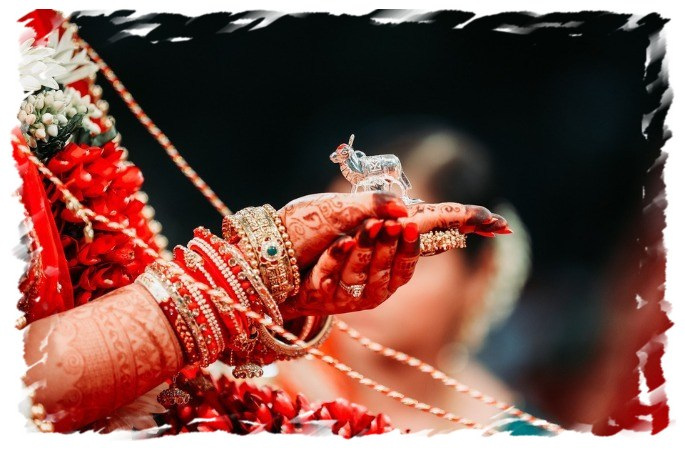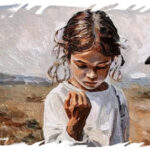In January, Assam Chief Minister Himanta Biswa Sarma announced that a “statewide drive will be launched against child marriage, booking men marrying girls below 14 years of age under Protection of Children from Sexual Offences (POCSO) Act, and those marrying girls aged 14-18 under Prohibition of Child Marriage Act.” He also said that police will have the authority to retrospectively book people who were involved in such acts in the last seven years with a special spotlight on “mullahs, kazis and pujaris” conducting these marriages. In just nine days of this announcement, 4,000 cases against child marriage were registered in the State. While one might critique the way in which this law was implemented, as the Gauhati High Court has done, in February 2023, the fact remains that this is not only the story of Assam. Several states across our country are grappling with this evil of child marriage that further intensifies the issue of Gender Based Violence Against Women and Girls, specifically in rural regions.
Thirty-nine kilometres from the Bageshwar district lies a breathtaking village – Pothing, tucked away in gigantic Himalayan mountains. Its geographical isolation has kept its inhabitants from participating in the socio-economic development of our country. The practices followed in this village promote attitudes and behaviours that lead to the manifestation of Gender-Based Violence. From forcing adolescent girls to stay in cowsheds during their menstrual periods to marrying them before the legal age, one can find several visible and ‘invisibilised’ forms of violence to which these girls are subjected. Several reports from the state highlight how girls are either sold or forced to marry men half their age. National Family Health Survey -5 (NFHS-5) also records that 9.8 per cent of women aged 20-24 got married before the age of 18 in Uttarakhand. It is important to note here that NFHS considers only reported cases, and one can only imagine the access and agency of young girls living in these inaccessible areas to police stations (and to other state mechanisms meant to report these cases).
Despite the increased investment of the state to create awareness among people here, the cases are not coming to a halt. Last year, Neetu’s* sister from Pothing village was coerced into a marriage at the age of fourteen. “My sister was married while she was just a child and without her consent. She wanted to complete her education, find a job and earn money but the condition at home forced her to bow to our parents’ decision.” As informed by Neetu, although her sister was ‘permitted’ to continue her education after marriage, she is now required to seek permission for everything. “Without the permission of her husband and in-laws, she cannot even step out of their house,” added Neetu.
Neetu, there are five siblings in the family – four daughters and one son. While Neetu’s elder sister got married at the age of 14, her younger sisters are 12 and 11 years old. The brother is the youngest and is five years old. Her father is a daily wage labourer, has married twice and doesn’t contribute to this family, while Neetu’s mother works as Bhojan Mata (mid-day meal cook) in a government school to make both ends meet. At present, Neetu’s parents are trying to get her married after her sister, against which she puts up a fight every day and shares that she will end her life if she is forced to get married. One can only imagine the mental pressure on this 16-year-old girl.
Just like Neetu, Karishma Mehta, a fifteen-year-old adolescent from the same village, saved herself from falling into the trap of child marriage. After the death of her father, the financial condition of the family deteriorated, and her mother, with no source of income, wanted to get her married. “Although the groom was fourteen years older, looking at the situation at home, I agreed to get married. One of our relatives had helped my mother arrange the groom and said that they would allow me to continue my studies after marriage,” she shared.
But with time, Karishma’s fiancé started asserting control over her and stopped her from going to school for a month. Finally, she mustered the courage to call off the wedding when he touched and spoke inappropriately to her in front of the family. “It was a few months ago, the boy and his family had come over to our house. He touched me and spoke to me inappropriately during this visit. The incident confirmed my intuition that he was not the right man for me. I slapped him and refused to marry him,” shared Karishma, who believes that it was because of her education that she was able to identify and make the right decision at the right time. But not every girl in this village has the courage and agency of Karishma.
Soma, another teenager from the village and a student in class 12, believes that girls are always considered “someone else’s property” and that their primary goal is to provide for the families, which leads to child marriages.
“It is common in our village to get girls married before the age of 18. After marriage, the girl is frequently subjected to physical and mental abuse for dowry. At the same time, pregnancy at an early age makes them physically and mentally weak,” said Soma.
Khakhoti Devi, a sexagenarian, was also married to a man in Pothing at the age of 12. Reflecting on her journey, she expressed, “This marriage was done without my consent. When I was married into this family, even though I had no idea and guidance on how to run a house, I was burdened with the responsibility of the entire family.”
Even after 62 years, not much has changed in the Pothing village. Girls are still being forced into marriages without completing their education. As now there is some awareness and understanding among the adolescent girls in the village because of an intervention by a non-profit organisation, the girls here are grappling with several questions about child marriages. Maybe a strict step like the one taken by Assam CM, along with awareness programmes in such last-mile villages, can bring new hope for these girls.
This article was sourced from ‘Charkha Features’ Charkha works towards the social and economic inclusion of marginalized communities in remote and conflict areas through the creative use of media. Many of these areas are highly inaccessible and socially, economically and politically unstable.



